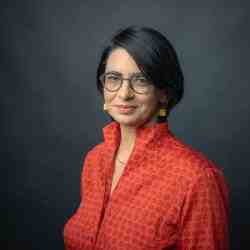Introduction
Fernando Botelho helps educate and prepare people with visual disabilities and few resources, through an affordable and adaptable open source technology that is easily implemented in schools and facilities around the world.
The New Idea
Rooted in his own experiences as a blind person, Fernando created a new technology and strategy for implementation to overcome widespread exclusion from opportunities to learn and work faced by the visually impaired. F123 System is a low-cost technology that enables any personal computer to become totally accessible with the simple installation of an external USB or “pen” drive.
Critical to the F123 System is its plethora of uses and the ease with which users can customize the software. Apart from common software applications, the system possesses an electronic reader and screen magnifier, educational materials for teachers, and training instructions for users. It costs only 2 to 15 percent of the price of a standard e-reader for the entire apparatus. Fernando is now designing specialized content to improve the quality of life of visually impaired individuals who already use the system. Open source coding also ensures that the technology remains affordable, versatile, financially self-sufficient, and scalable.
Fernando designed a complete strategy to distribute and implement the F123 System. To directly leverage possible system improvement, he has established pilots with diverse partners and created a network of third-party vendors that represent, distribute and advertise the F123 in numerous countries. He has also entered into negotiations to spread the tool more systematically throughout Brazil and the world; thereby improving the lives of millions of people who are visually handicapped.
The Problem
Blind and visually impaired people confront innumerable hardships in accessing education and integrating fully into societies across the world. According to the International Labor Organization, 99 percent of women with visual disabilities in developing countries are illiterate. In the case of visual impairments in Brazil, individuals on the whole are relatively marginalized. Some 16.5 million people live with some sort of visual handicap under these circumstances—148,000 are blind, 2.5 million experience significant permanent vision difficulties, and 14 million experience permanent visual impairment that can be mitigated by wearing glasses.
Despite this large demographic, Brazil offers scant resources to educate and prepare visually impaired people to join the labor force. Of the five million books and other educational materials in the municipal libraries of São Paulo, for example, only 5,000 works are adapted for the blind. By law Brazilian television must only complement programs with audio playback for two hours per week. In terms of facilities, only 90 of the 5,000 public schools and two of 600 computer learning centers are equipped with the appropriate technology for blind users. In a country undergoing a clear process of economic development, the information gap with which disabled individuals must grapple only aggravates their social isolation and vulnerability to prejudice and discrimination.
Despite having enacted labor legislation that obligates Brazilian businesses to hire disabled individuals as a percentage of their staff, Brazil has experienced little change in this regard. Rather than arousing a wider societal discussion on inclusive politics and expanded access of learning, the law only bred skepticism toward the quotas themselves. In general, employers believe that individuals with disabilities are not well trained or qualified to hold highly skilled positions. Not by coincidence, most of the jobs available for the visually impaired are in telemarketing or related industries, or in other occupations that demand little intellectual prowess or professional expertise. In reality though, society-at-large does not understand the deeper obstacles that render these circumstances for the visually impaired. Such individuals are just as capable of completing a superior education and fulfilling the demands of a skilled occupation, but they lack the specialized preparation to do so.
Although technologies do exist to adapt computers for visually impaired or blind people, their high cost puts them out of reach for many in this community. The best-known international e-reader, Jaws, costs over $1,000 dollars per license, a price that can be even higher in countries like Brazil due to import duties. Add software that enables Internet navigation, a word processer and screen, and the final price is practically impossible for anyone, even the Brazilian public school system or companies intending to hire a visually impaired employee. The consequence is an education system and a labor market that is nearly inaccessible to this population.
The only way to overcome this huge market failure is by developing high-quality software at low cost. Once the price obstacle is removed and a new technology implemented, blind individuals can begin to steadily and regularly enhance their intellectual and professional abilities.
The Strategy
Fernando understands on a personal level what people with visual disabilities, like any abled person, confront in actualizing their professional and civic value. After working in a number of countries, he realized that the dismal work conditions he faced in Brazil and other places around the world did not have to be the norm. Fernando started to research low-cost technologies that would make superior education attainable to people with disabilities regardless of their socioeconomic class. In his research, he found out that the prices of computers between 1997 and 2006 decreased some 80 percent, while the price of the special e-reader Jaws increased by 20 percent during the same period. Rather than manufacturing new hardware, he decided to design new technically and financially accessible software under the aegis of the organization he created, the F123 Group.
The first technology that Fernando constructed was the F123 Visual System, which could allow any visual impaired user to manipulate any computer by merely downloading the software or inserting a USB drive. The F123 Visual System features typical computer applications (word processor, calculator, e-mail, instant messaging, and Internet browser) in addition to a screen magnifier, reader, and Optical Character Recognition software to convert scanned images to text. Besides offering these applications in an integrated package—customarily each must be purchased separately—the F123 Visual System costs 50 times less than the Jaws brand, mostly due to the reliance on open source coding.
The technology itself, though, is only one aspect of Fernando’s work. He fervently believes that achieve the massive impact to which he aspires, he must develop methods to teach the software and spread it to other users. Fernando first piloted the F123 System through the Free Education project in partnership with a citizen organization (CO), More Differences, in 2010 with two organizations in Curitiba and Novo Hamburgo and addressing 74 individuals. Direct feedback gathered from these courses and technical workshops helped make the technology and project more sustainable. Besides improving the Portuguese-language version, Fernando managed to create versions of the software and training materials in English and Spanish. He distributed 380 copies to COs, foundations, communities and public agencies in Brazil and 22 countries worldwide. Final users paid between $20 and $150 dollars, varying based on the needs of the individual. This is an extremely affordable price compared to competitors which still allows Fernando to cover his expenses, thereby proving that his technology is financially viable even at low costs. Fernando recently decided to invest $5,000 dollars to improve the capability of the screen, a minimal investment relative to the impact that it has already had; benefiting some 14 million users of the computer around the world due to widespread partnerships with organizations working with the blind.
The principle of free software, the basis of the F123 System, does affect the means through which Fernando hopes to achieve larger scale impact and the institutional independence of whatever person or entity uses it. Since all software, documents and audio training is developed open source, any sharing or customization of the materials is both legal and permitted. This enables the technology to extend far beyond what resources the project might permit. He is also producing audio-based teaching materials with specialized content relevant to the visually impaired, such as healthcare, mathematics, visual programming, etc. Due to the open source nature of the content, the wider community of users will be able to tailor and improve the different technologies and content.
Even as he seeks to maintain his financial sustainability at global scale, Fernando will not abandon his free standard version, at present available for download in three languages. He does sell a deluxe version at a relatively low fee. For about $150, customers can purchase a package that contains a license priced separately at $20, DVDs, installation CD and a 4GB USB drive that holds the technology and is easily inserted into any computer. Fernando sells the equipment largely to corporations, public agencies and eventually to individual subscribers interested in purchasing specialized content. In the long-term, Fernando hopes to design companion software that will serve people with motor disabilities.
Alliances with other organizations are Fernando’s main source of implementation and expansion. In conjunction with his first pilot project, the F123 System won the Inter-American Development Bank “A World of Solution” prize, which has allowed Fernando to complete workshops presenting the system to more than 200 different institutions. This has helped expand his base of allied organizations beyond just those who could afford the accessible technology. Currently the Sao Paulo municipal government is evaluating a plan to integrate the F123 System into its 300 free Internet portals and its 50 libraries, following the state government of Sao Paulo, which has for the past two years used the technology to teach public school instructors with visual handicaps. Relying on contacts he gathered earlier in his career, Fernando has built a network of partners across Latin America and even into Africa that are beginning to use the F123 System. One of his partners in Uruguay signed an agreement with government to distribute the F123 throughout public schools in Montevideo and is helping him execute a larger pilot throughout the city. Also, the El Salvador Center of Accessible Technology, created in partnership with the Telefónica Foundation and the Secretary of Social Inclusion, now features the F123 System technology and is addressing 217 people with visual impairment. With this distribution strategy founded on his expansive network of allies, Fernando hopes to create opportunities for millions of people worldwide with visual impairments to achieve an education.
The Person
Fernando has suffered from vision impairments since childhood. As a function of his father’s mobile job, he and his family found themselves transplanted to countries around the world, and parallel to each new move, his own challenges grew more difficult. Fernando gradually began to lose his sight and felt that his teachers, at the time in Chile, could not teach students like him. His usually stellar academic record dropped significantly and after returning to Brazil, he was held back in physics and math, but not Portuguese. One day his mother asked him if he wanted to learn Braille, to which he replied, “Braille? But Braille is for the blind.” Yet Fernando started to accept what was happening to him. His parents spared no expense in furnishing him with resources and special instructors so that he could finish his schooling with a quality education.
Fernando studied in the U.S. and stayed to attend university. He placed 4th in his class of 900 students. Receiving specialized and accessible education, together with his diligence, led him to desire further studies. Fernando embarked on a degree in sociology at Cornell University, believing that this discipline would teach him a more interdisciplinary understanding of the world. Later he completed a master’s degree in International Relations and was chosen as a graduation speaker, the first blind student to receive this degree at Georgetown University.
While studying in the U.S., Fernando learned that seven out of ten people with visual impairments in the U.S. were unemployed. He accepted a job in Houston, but left due to the poor work conditions for him. Performing various service trades, he made a trip to New York to attend a job fair for people with disabilities, and he convinced the organization that hosted the event to hire him. There Fernando developed the first job portal for people with visual impairment in the U.S. He then moved to the United Nations International Trade Centre and had the chance to spearhead a project that identified the twenty leading exporters of services for people with disabilities in Latin America. Never satisfied with achieving the minimum, Fernando found 144. This experience sparked a notion to produce low-cost products that would address people with disabilities, which he continued in his next job in the Philanthropy Services department of Swiss bank UBS.
At some point, Fernando realized that instead of accepting a stable job and lifestyle, he yearned to do something on behalf of visually impaired people who never had the same opportunities he had due to a lack of financial resources. Indeed, the visual impairment that many perceived as an obstacle he came to regard as the linchpin that would help transform the lives of millions of people. With this conviction, he returned to Brazil. His experience with the UN had put him in touch with the Brazilian CO More Differences, which hired him to improve its performance in management and evaluation. Fernando also began to design the prototype for F123 and together with More Differences achieved funding to cover the first pilot project. Now, Fernando is leading a technological movement to enhance the lives of disabled people around the world with zeal and dedication, committed to fostering a positive impact for the lives of millions of people.



